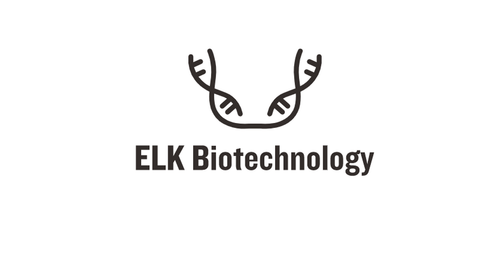Product Description
Human RCC1 and BTB domain-containing protein 2 (RCBTB2) ELISA Kit | AE22616HU | Abebio
Species Reactivity: Human (Homo sapiens)
Abbreviation: RCBTB2
Alternative Name: CHC1L; RCC1-like G exchanging factor RLG|chromosome condensation 1-like|regulator of chromosome condensation and BTB domain containing protein 2
Application: ELISA
Range: 0.312-20 ng/mL
Sensitivity: 0.124 ng/mL
Intra-Assay: ≤5.4%
Inter-Assay: ≤8.6%
Recovery: 0, 99
Sample Type: Serum, Plasma, Other biological fluids
Detection Method: Sandwich
Analysis Method : Quantitive
Test Principale: This assay employs a two-site sandwich ELISA to quantitate RCBTB2 in samples. An antibody specific for RCBTB2 has been pre-coated onto a microplate. Standards and samples are pipetted into the wells and anyRCBTB2 present is bound by the immobilized antibody. After removing any unbound substances, a biotin-conjugated antibody specific for RCBTB2 is added to the wells. After washing, Streptavidin conjugated Horseradish Peroxidase (HRP) is added to the wells. Following a wash to remove any unbound avidin-enzyme reagent, a substrate solution is added to the wells and color develops in proportion to the amount of RCBTB2 bound in the initial step. The color development is stopped and the intensity of the color is measured.
Product Overview: RCBTB2 encodes a member of the RCC1-related GEF family. The N-terminal half of the encoded amino acid sequence shows similarity to the regulator of chromosome condensation RCC1, which acts as a guanine nucleotide exchange factor (GEF) protein for the Ras-related GTPase Ran. The CHC1L gene contains 14 exons and spans at least 30 kb. The 3.2-kb CHC1L mRNA was expressed in all tissues tested by Northern blot analysis. The authors identified 4 alternatively spliced CHC1L transcripts encoding 2 protein isoforms of 551 and 526 amino acids, respectively. Sequence analysis revealed that both isoforms contain 6 repeats that share homology with repeats found in CHC1 and RPGR, and a zinc finger motif.
Stability: The stability of ELISA kit is determined by the loss rate of activity. The loss rate of this kit is less than 5% within the expiration date under appropriate storage condition. The loss rate was determined by accelerated thermal degradation test. Keep the kit at 37°C for 4 and 7 days, and compare O.D.values of the kit kept at 37°C with that of at recommended temperature. (referring from China Biological Products Standard, which was calculated by the Arrhenius equation. For ELISA kit, 4 days storage at 37°C can be considered as 6 months at 2 - 8°C, which means 7 days at 37°C equaling 12 months at 2 - 8°C) .
 Euro
Euro
 USD
USD
 British Pound
British Pound
 NULL
NULL








